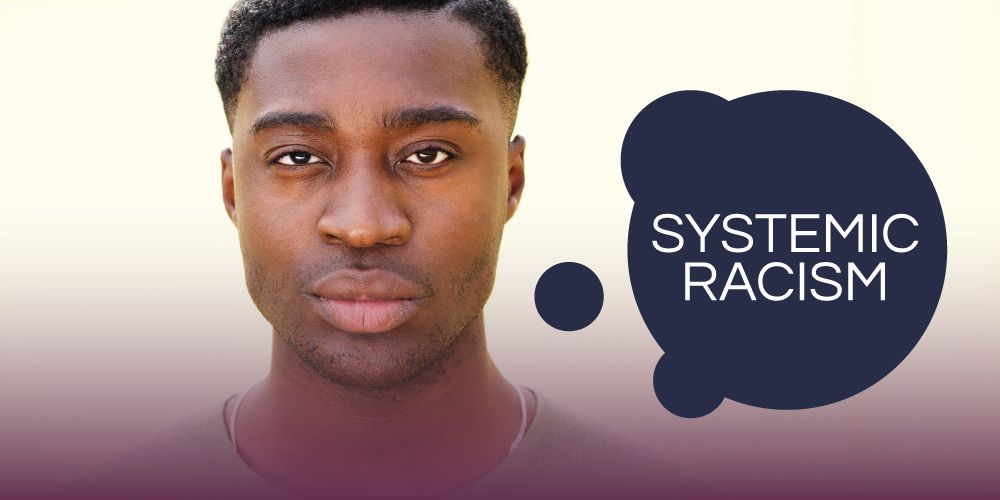The COVID-19 pandemic and the eruption of worldwide protests in support of the Black Lives Matter’s movement to bring an end to police brutality have illuminated how deeply rooted and widespread issues caused by systemic racism impact the growing intersection between systemic racism and healthcare disparities.
Current research shows that systems and institutions established and structured during slavery, reconstruction and the civil rights era, have either perpetuated this sentiment of blacks as second class citizens or failed to advance substantive policies that promote full justice and equality. Worse, these systems and institutions, perpetuate white privilege, a cause and effect of racism, with historic and present-day ability to influence systemic decisions.
Systemic or structural racism can be defined as “a well-institutionalized racial hierarchy
designed to keep white power and privilege” (Feagin, 2017). Systemic racism has been
constructed and designed to control many, if not all of the operating systems in the country and
has had continued negative impacts towards the black and brown populations to ensure there is a
distinguishable “divide” between those who have access to certain privileges and those who do not. (Kleven, 2009). Imbedded and inherent inequalities across multiple systems that affect wellness in American society place people of color at an extreme disadvantage and create inherent, predisposing risk factors for experiencing violence, a poorer quality of life and multiple health concerns. (Castle, Wendel, Kerr, Brooms, & Rollins, 2018).
Healthcare remains a glaring example of the human cost of systemic racism and inequity. Health disparities involve unequal access to healthcare services, quality of care and overall advantages to healthy living that are directed towards those of advantaged backgrounds. Less advantaged groups are subjected to poorer health outcomes from both genetic risk factors as well as environmental risk factors that stem from prolonged conditions that are not favorable. Many jobs with adequate healthcare, jobs that allow families to operate outside of the low-income class are focused in areas that are predominantly white. Black people who live in underserved areas generally have less access to quality healthcare and tend to be serviced by overpopulated and understaffed medical facilities, which results in poorer quality of medical care (Feagin & Bennefield, 2014). A large issue that lies within healthcare and health disparity is practitioner preference and bias within health care systems (Fitzgerald & Hurst, 2017), combining to form a perfect storm, systemic racism and healthcare disparities have created a plethora of mental and physical health issues for black people in this country.
Despite medical and technological advancements, black and brown people still die at a disproportionately higher rate than whites. Black men have on average the lowest age expectancy out of any other group in the country and black women’s mortality rate while giving birth is three times as high of that for white women (CDC, 2016, Bond & Herman, 2016). African American men, in particular, are hit hard not only by racial injustice within the legal system, they are 30% more likely to die from heart disease and 60% more likely to die from stroke than are non-Hispanic white men (US Dept of Health and Human Services, Office of Minority Health, 2012).
As we have seen with the ever expanding impact of COVID-19, black people continue remain at higher risk, and disproportionately infected and killed by the pandemic: https://www.theguardian.com/world/2020/may/20/black-americans-death-rate-covid-19-coronavirus
Black people also make up a vast majority of the essential work force in low paying jobs such as grocery store workers. They also predominantly reside in communities that are designed to be impoverished, or have many health risks such as “food deserts” (where there are no healthy food options or where the majority of the food options are high in sodium and sugar), which has been shown to contribute to increased instances of high cholesterol, a higher rate of diabetes, hypertension and heart disease (Greer, Brondolo, & Brown, 2014). These potential health risks and negative outcomes can be attributed low-income, lower quality jobs, and segregated neighborhoods according to social science.
Redlining, for example, has led to a reduced “suburbanization” of certain areas, creating homeownership to cluster by race and allowing segregation to happen by neighborhood or by region (Gee & Payne-Sturges, 2004). Segregating services such as hospitals, urgent care, or primary care physicians has been linked to an increased risk of health concerns or complications as people of color are not able to get the consistent care or medical attention, they need to maintain a healthy lifestyle. According to the CDC in 2016 black people over the age of 20 have a 37.5% obesity rate in men and a 56.1% obesity rate in women, over 40% of the population were measured to have hypertension, and more than 10% of black people under the age of 65 had no means of obtaining health insurance.
Without livable wages, access to proper social supports, including wellness and nutrition education and support, and an inability to access quality healthcare professionals, black people find themselves at an increased risk of experiencing not only obesity but a myriad of preventable and modifiable health concerns.
The occurrence of treatment disparities is perhaps more glaring with mental health where little to no culturally relevant mental health resources extend into poorer communities (Cook, McGuire & Miranda, 2007). The dearth of information and education in lower income communities of color adds to the skepticism and stigma that these communities have attached to mental health services. (Atdjian and Vega, 2005). Stigma can lead to underreporting of symptoms as well as feelings of shame and guilt, which can intensify anxiety, depression, suicidal thoughts and negative coping behaviors. Black people tend to receive less empathy from clinicians and are faced with cultural bias that can lead to an unethical mishandling of their case. (McGuire & Miranda, 2008). For example, black men are diagnosed with schizophrenia at a rate that is five times as high as their white peers (Schwartz & Blankenship, 2014), and black children are diagnosed with a conduct disorder more than their white peers who instead receive a diagnosis of an attention disorder which would receive assistive services in most school districts (Mizock, Lauren & Harkins, 2011).
Years of discrimination and mistreatment have led to mistrust between the medical and black community (Suite & Labril, 2007). It was not so long ago that black communities faced sterilized abortions, were the subjects of non-consensual scientific experimentation and horrific acts such as the Tuskegee Syphilis Experiment. In this infamous experiment, black subjects were told they were receiving medicine for a list of ailments when in fact they were not treated for anything and were allowed to live with syphilis for years until they passed away. This sham practice went on for 40 years. This gross mistreatment of Black people at the hands of medical professionals has been etched in the psyche of black families who have passed on their cultural experiences to subsequent generations.
By way of history and current experience, black individuals and families continue to face racial and ethnic discrimination as well as bear the burden of cultural bias, incompetence and insensitivity with regard to obtaining healthcare. The current COVID-19 pandemic has underscored the urgent need to address these disparities. It is well documented that severe illness and death rates trend higher for racial and ethnic minorities s during public health emergencies (Thomas et. Al, 2013). According to many population studies and news reports, African Americans are disproportionally dying from exposure to COVID-19. Much of the increased mortality stems from what is being called “pre-existing conditions”. Sadly, many of these medical conditions are perpetuated and, in some instances, caused by the intersect of racism and healthcare disparities that reduce or deny access culturally appropriate healthcare education, screening, and treatment.
If you, or someone you love, needs culturally appropriate emotional or psychological help, please feel free to join the Circle. We look forward to connecting with you and doing whatever we can to help you achieve total wellness and peace of mind.
Tim Wilkerson, M.A. is a clinical psychology intern with Full Circle Health. Tim is a graduate of the Clinical Psychology Program from Teachers College, Columbia University and a doctoral student in the Graduate School of Applied and Professional Psychology Program at Rutgers University.







